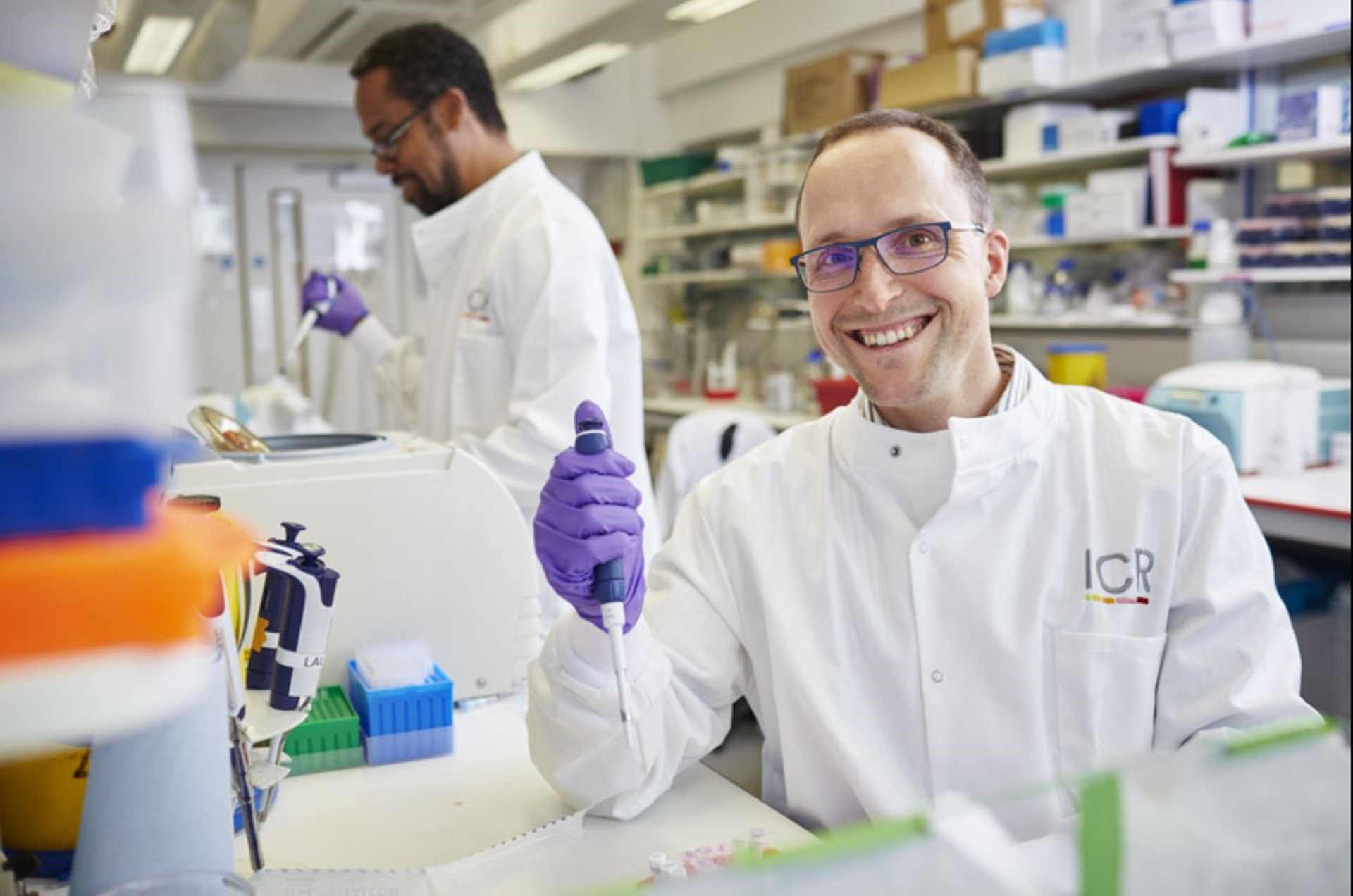
Opportunity: A potent, orally bioavailable clinical-stage inhibitor of MPS1 with potential as a treatment for a range of cancer types including triple negative breast cancer
Swen Hoelder
ICR lead scientists/inventors:
Swen Hoelder
Opportunity at a glance
- CCT289346 (previously BOS172722) is a highly potent, selective and orally bioavailable inhibitor of spindle assembly checkpoint kinase MPS1. The Institute of Cancer Research, London, is seeking a licensee or commercial partner to continue its development.
- In a multi-centre phase I trial of CCT289346 in combination with paclitaxel (ClinicalTrials.gov identifier: NCT03328494), eight partial responses were seen (from 35 patients included in the full analysis) in combination with paclitaxel, in four different tumour types.*
- In preclinical studies, CCT289346 has shown effectiveness as a potential treatment for cancers including breast, ovarian, lung and renal.
- Composition of matter and method of use patents are secured in the US and EU, and equivalent patents have been filed worldwide.
- The ICR also has a set of biomarkers that predict sensitivity to CCT289346.
*unpublished data
More about a potent, orally bioavailable clinical-stage inhibitor of MPS1 with potential as a treatment for a range of cancer types including triple negative breast cancer
CCT289346 is a highly potent, selective and orally bioavailable inhibitor of spindle assembly checkpoint kinase MPS1. Discovered by scientists at The Institute of Cancer Research (ICR), it has shown promising early results in a phase I trial.
MPS1 is a key component of the spindle assembly checkpoint (SAC), which ensures proper segregation of the chromosomes during mitosis. Pre-clinical studies led by ICR researchers have shown that inhibition of MPS1 triggers mitosis in tumour cells before the chromosomes are properly aligned along the cellular spindles, leading to gross chromosomal segregation defects.
In combination with the chemotherapy paclitaxel, which has a synergistic mechanism of action, ICR researchers showed that CCT289346 causes robust tumour regression in human xenograft models of triple negative breast cancer.
They have also studied the drug as a potential treatment for lung, ovarian, renal and basallike cancers, and have developed a set of biomarkers which could help guide treatment with MPS1 inhibitors and other drugs targeting cell division.
The new inhibitor has emerged from a world-leading programme of breast cancer research which has pioneered the concept of synthetic lethality in cancer treatment, including by targeting the PARP inhibitor olaparib (Lynparza) to cancers with defects in the BRCA genes and developing the drug in early trials.
Our excellence in drug discovery
The Institute of Cancer Research (ICR) runs one of the world’s leading academic cancer drug discovery programmes. Since 2005, researchers based in its Centre for Cancer Drug Discovery have discovered 21 clinical candidates, of which 13 have been progressed to clinical evaluation.
Our drug abiraterone (Zytiga) has also been approved in the US, Canada and Europe for late-stage prostate cancer and has benefited hundreds of thousands of patients across the world.
The Centre for Cancer Drug Discovery
- is based in a new state-of-the-art £75m building in Sutton, south London and comprises 160 staff dedicated to the discovery and development of novel therapeutics for the treatment of cancer
- has expertise and resources in every stage in drug discovery, including target validation, compound screening, hit discovery, assay development, lead optimisation and preclinical development
- is integrated with the Drug Development Unit, a world-leading phase I cancer clinical trials unit run jointly between the ICR and our partner hospital The Royal Marsden
- collaborates with industry partners at every stage in drug discovery and development
- works closely with scientists in our Divisions of Cancer Biology and Structural Biology, who contribute to innovation by gaining new insights into cancer biology and identifying novel targets. The ICR is the UK’s leading academic centre in biological sciences^.
^ REF 2021: UK Government assessment of university research quality.
Key publications
Anderhub S et al. High Proliferation Rate and a Compromised Spindle Assembly Checkpoint Confers Sensitivity to the MPS1 Inhibitor BOS172722 in Triple-Negative Breast Cancers. Mol Cancer Ther. 2019 Oct; 18 (10): 1696-1707.
Woodward H et al. Introduction of a Methyl Group... Enables the Discovery of the Phase 1 Clinical Candidate... BOS172722. J Med Chem. 2018 Sep; 61 (18): 8226–8240.
Contact us
Contact:
Jenny Hodgson PhD
Business Development Manager
Email: [email protected]